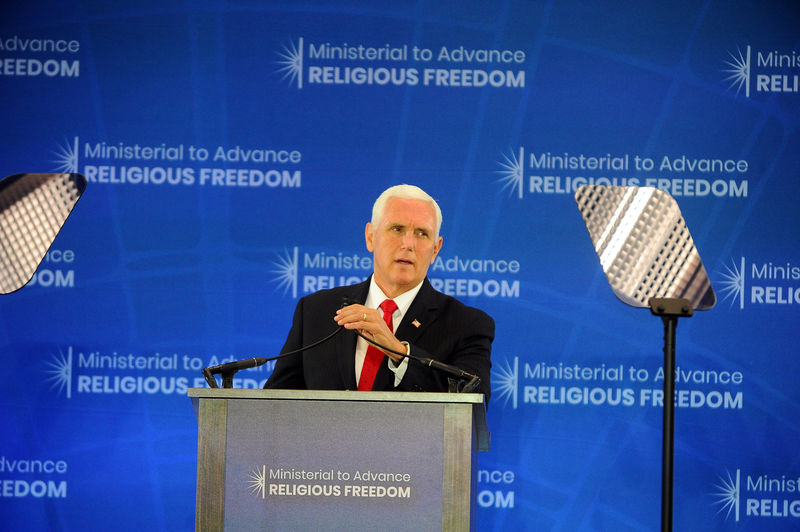WASHINGTON (Reuters) - U.S. Vice President Mike Pence on Tuesday said that a new U.S.-Mexico-Canada trade deal needs to be approved without delay, but Democrats and organized labor said certain provisions must first be improved.
Pence told reporters he was hopeful that the U.S. House of Representatives, which is controlled by Democrats, would pass the agreement this fall.
"The clock is ticking," Pence said. "Canada has already begun to make it through the legislative process, Mexico has already begun making changes that we asked for. ... We believe if House Speaker Nancy Pelosi brings it to the floor it will pass."
The Trump administration wants Congress to approve the trade deal to replace the North American Free Trade Agreement, but House Democrats have said they will not proceed until their concerns related to labor, climate, enforcement and pharmaceutical are met.
The agreement, which leaders from the United States, Mexico and Canada signed in November, must be ratified by lawmakers in all three countries. Mexican lawmakers have already done so.
Senator Charles Grassley, the Republican chairman of the Senate Finance Committee, told a hearing on Tuesday that he had an "open mind" about ways to improve the agreement, including stronger enforcement. But he warned that reopening the whole pact could cause it to unravel.
Grassley said he had a "very positive" discussion with Pelosi and was upbeat about her commitment to moving forward.
"People want to push and push, but I think we must be patient as she works through this, and I am confident that she wants to get to 'yes,'" he said.
Experts from the automotive, agriculture and trucking industries told the hearing they expected considerable benefits from the deal, which the International Trade Commission estimates will increase U.S. gross domestic product by $68.2 billion while creating 176,000 U.S. jobs.
Michael Wessel, staff liaison for the United Steelworkers Union to the Labor Advisory Committee, which advises the U.S. Trade Representative, said he was optimistic about the ability to improve the enforcement mechanisms of the trade deal.
"People are at the table, there's good will and we're hopeful," Wessel told reporters after the hearing. "There's no desire to delay this, but there's a lot of work to be done."
He said certain textual changes would be needed, but that should not be a problem since the last four trade deals before the now-scrapped Trans-Pacific Partnership were amended after they were signed. A four-year period for Mexico to implement changes should also be shortened, he said.

He said unions were pressing for robust implementation, and certification of Mexico's compliance on labor issues. He noted that Nabisco had invested over $500 million to build a plant in Salinas Victoria, where it pays workers less than 10% of what U.S. workers earn, while laying off over 1,000 U.S. workers.